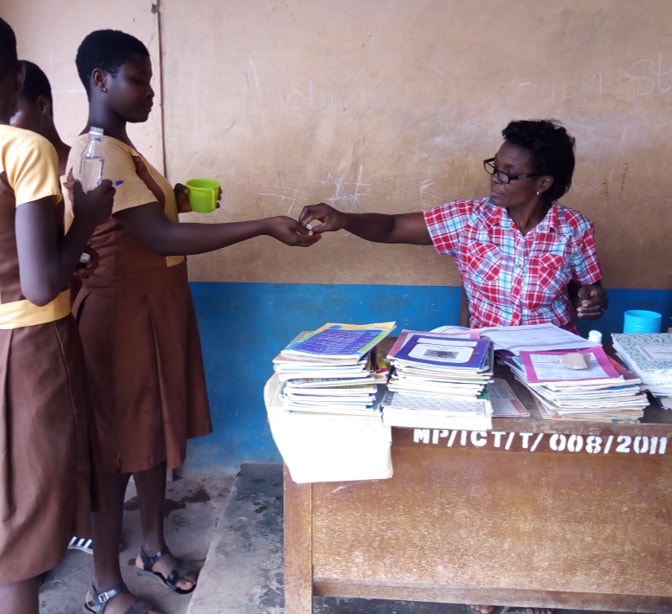Our Work to Reduce Vitamin and Mineral Deficiencies
CDC’s International Micronutrient Malnutrition Prevention and Control (IMMPaCt) program works to reduce vitamin and mineral deficiencies globally. In collaboration with multiple partners, the work primarily benefits women of child-bearing age, infants, children, and adolescents.
US Projects
Iron and iodine are critical for healthy birth outcomes, fetal and child growth, and brain development. Yet the United States has no state-level data on iron or iodine status among pregnant women and children younger than five years. CDC conducts surveillance and research to support US micronutrient nutrition policy and programmatic efforts by:
- Supporting ways to improve national surveillance.
- Innovating to fill data gaps.
- Improving case definitions for micronutrient malnutrition.
- Reviewing existing state-based data to identify innovative ways to fill data gaps.
Country Projects

IMMPaCt provides technical assistance, training, and/or funding for projects in 8 to 10 countries at a time. Currently IMMPaCt is working in the following countries and projects:
- Ghana—iron and folic acid supplements for adolescents.
- Nepal—integrated infant and young child feeding and micronutrient powder program.
- Niger—assessment of micronutrient deficiencies and correlates of anemia among pregnant women.
- Burkina Faso, Nepal, Rwanda, and Tanzania—national micronutrient surveys.
- Guatemala and Uganda—nutrition surveillance systems.
Laboratory Assistance

The accurate detection and diagnosis of micronutrient deficiencies depends on accurate, valid lab measurements. However, laboratories in developing countries often lack the resources and experience to decide which biomarkers are best suited for their situation. They may also not have the capacity to properly conduct all aspects of planning, training, specimen collection, quality assurance, and data interpretation for surveys that include micronutrient status biomarkers.
IMMPaCt works closely with two branches of CDC’s Division of Laboratory Sciences–Nutritional Biomarkers and Inorganic and Radiation Analytical Toxicology. These labs provide technical assistance and collaboration for CDC’s projects and run external quality assurance programs.
Research Results
IMMPaCt provides technical assistance for countries to carry out effectiveness studies and assessments. The results from micronutrient interventions implemented by various partners in real-world settings enhance the evidence-base of micronutrient interventions, assessment, monitoring, and surveillance. The research findings lead to improved micronutrient program effectiveness and help develop technical resources of wide impact.
Initiatives and Activities

Photo Credit: UNICEF Ghana
Biomarkers Reflecting Inflammation and Nutritional Determinants of Anemia (BRINDA)
BRINDA is a multi-agency international collaboration to improve micronutrient assessment and anemia characterization globally. BRINDA’s overall goal is to refine approaches to estimate the prevalence of nutritional status. This will improve the targeting, design and effectiveness of nutrition research and programs.
Food Fortification Initiative (FFI)
FFI champions effective fortification of industrially milled flour and rice globally through multi-sector partnerships. CDC provides technical support and has observer status on FFI’s Executive Management Team.
Global Alliance for Vitamin A (GAVA)
GAVA shares information and lessons learned about vitamin A supplementation in the context of other vitamin A deficiency control and child survival programs. GAVA is a forum for organizations, policy makers and program implementers to develop policies and tools to improve vitamin A supplementation. CDC participates in various technical working groups.
Home Fortification Technical Advisory Group (HF-TAG)
HF-TAG is a global network of stakeholders engaged in home fortification. They lead and support well-designed and effective home fortification interventions at scale for children and women, based on sound technical guidance and best practices. CDC is represented on the Executive Committee and participates in developing various technical documents.
Iodine Global Network (IGN)
IGN is a global network working towards sustainable elimination of iodine deficiency worldwide. CDC is represented on the Board of Directors and participates in various technical workgroups.
Micronutrient Forum
CDC is represented on the Micronutrient Forum’s Scientific Advisory Council. The Micronutrient Forum is a global effort to bridge scientific advances with policies and programs across multiple sectors. The goal is to ensure micronutrient adequacy for survival and optimal health throughout the life cycle.
Survey eManual/Toolkit
A survey eManual/Toolkit provides epidemiological support to countries to assess and monitor the elimination of micronutrient malnutrition. This survey eManual/toolkit provides a set of new and established resources from many sources and is intended for use by survey planners who need ready-made materials. IMMPaCt developed the newest edition of the survey eManual/toolkit in collaboration with WHO, UNICEF, and Nutrition International.
UNICEF
CDC and UNICEF’s Nutrition Section work together to combat micronutrient malnutrition. Priority strategies are home fortification, vitamin A supplementation, iron and folic acid supplementation, micronutrient supplementation, salt iodization, and monitoring, evaluation, and nutrition surveillance of large-scale nutrition specific programs.
World Health Organization (WHO)
CDC works with WHO’s Department of Nutrition and Food Safety to develop the evidence base for micronutrient interventions, policies, recommendations and best practices. This includes technical support for the Vitamin and Mineral Nutrition Information System.
